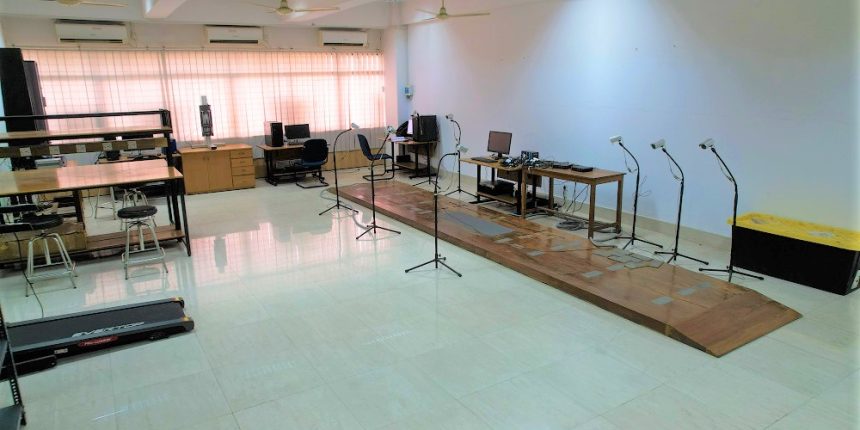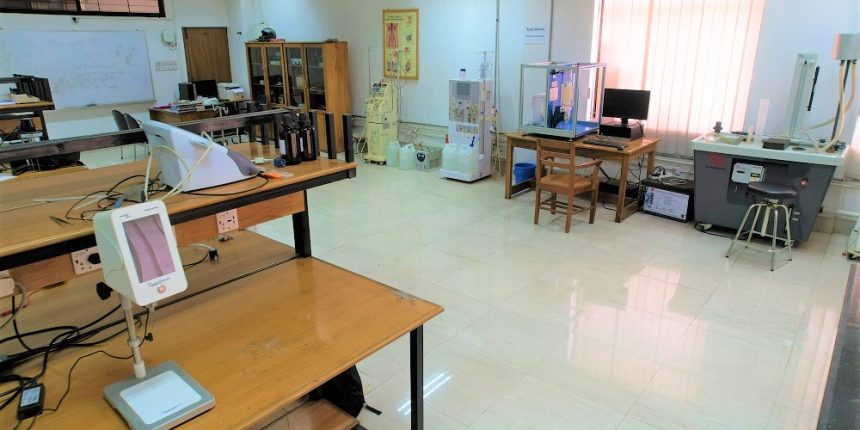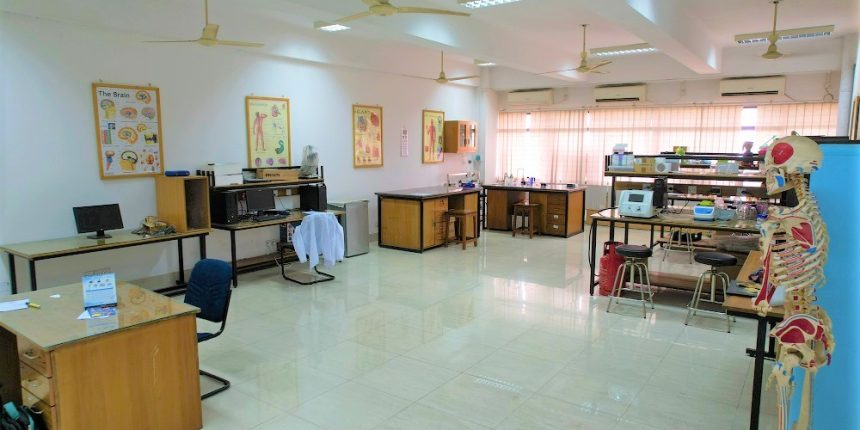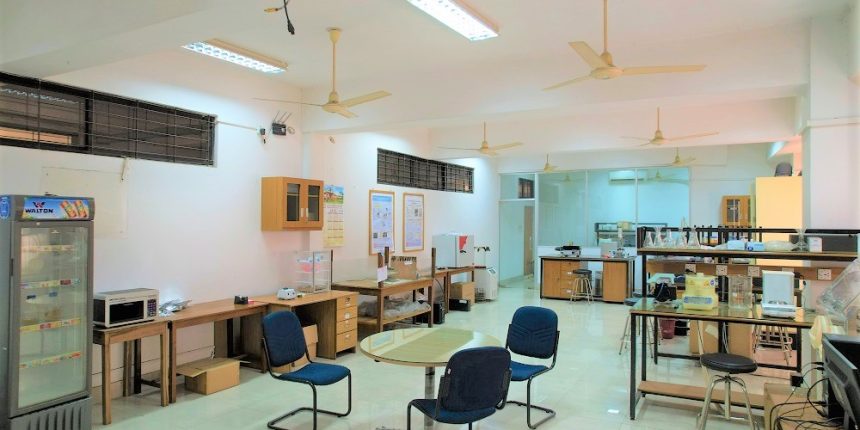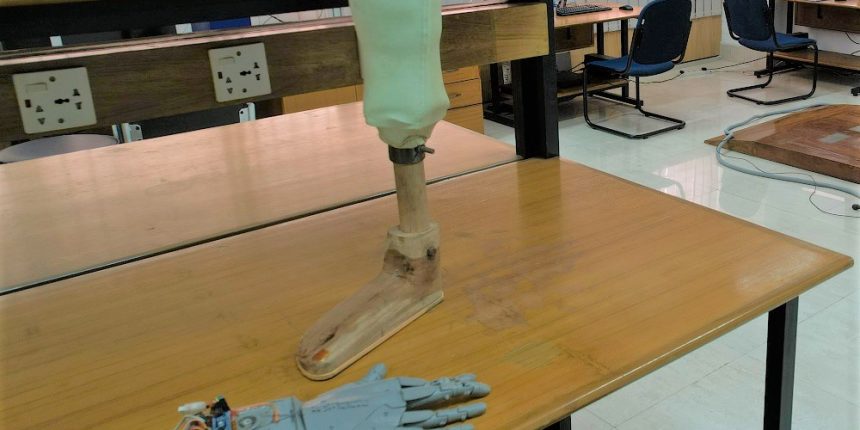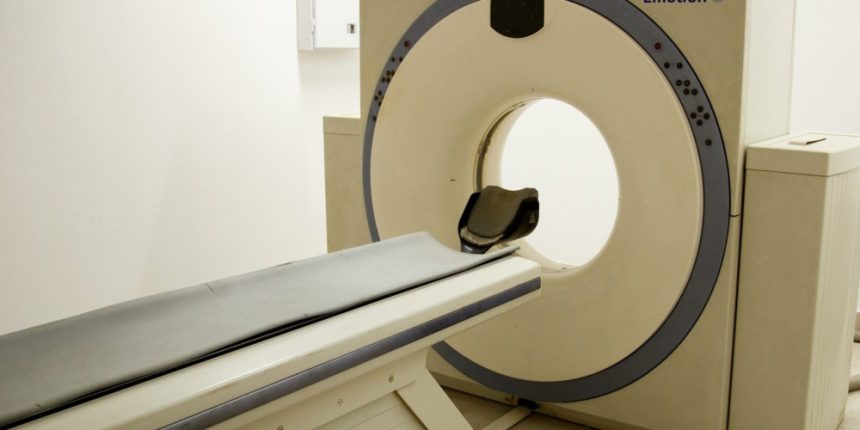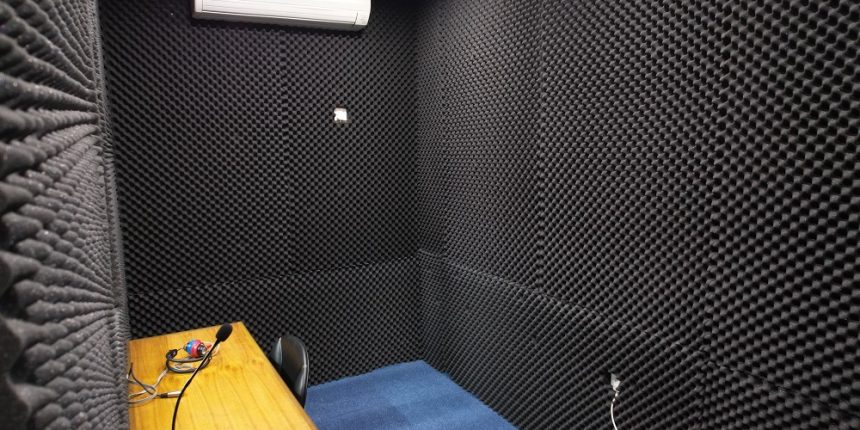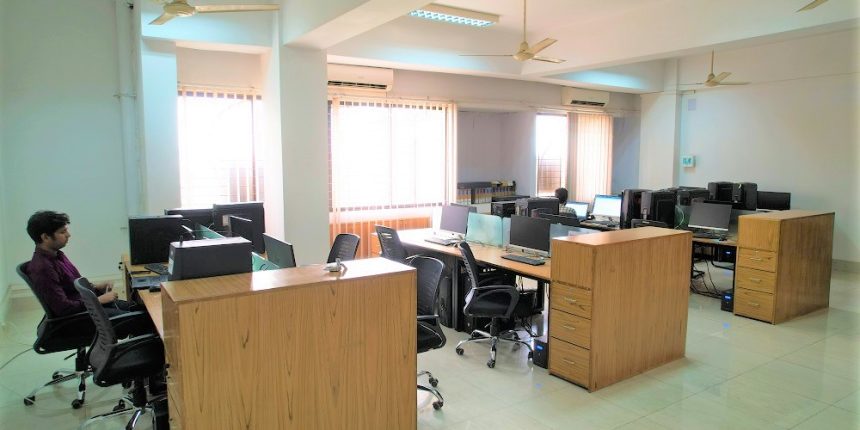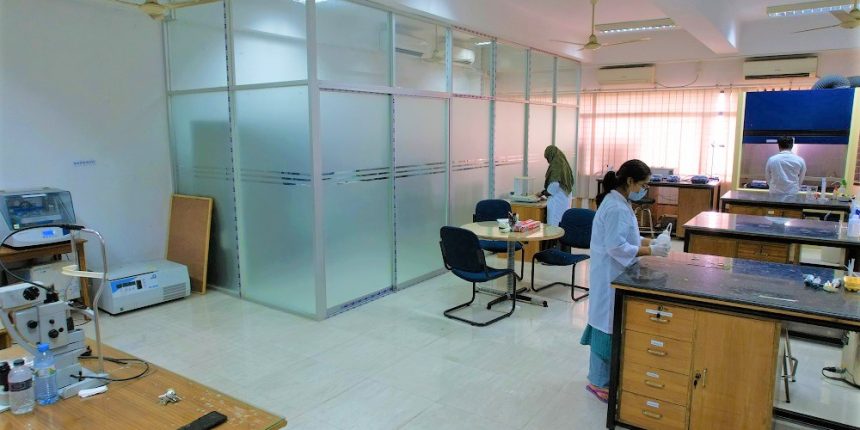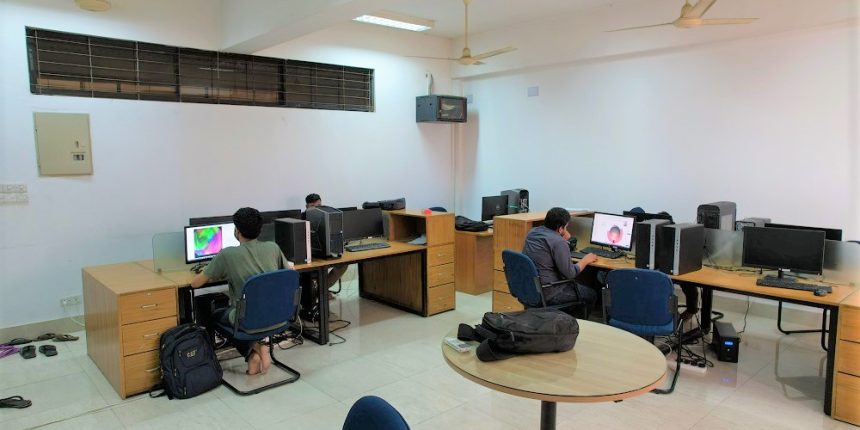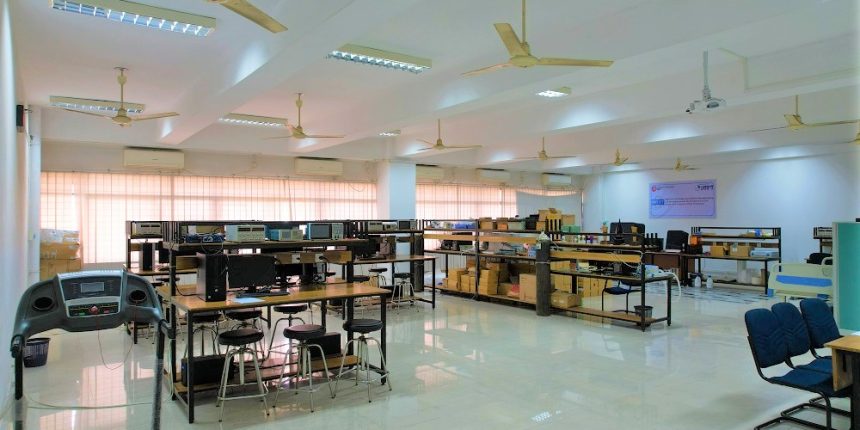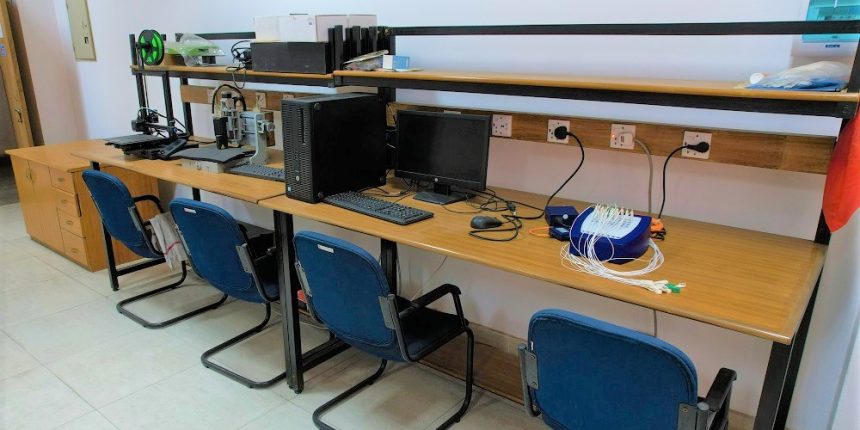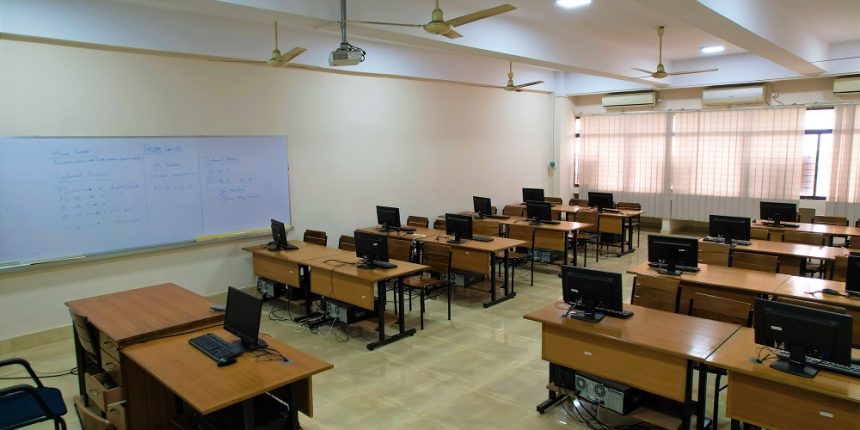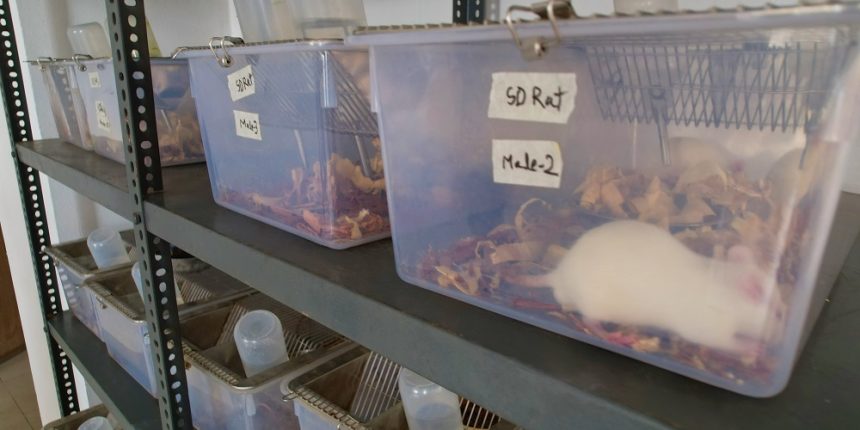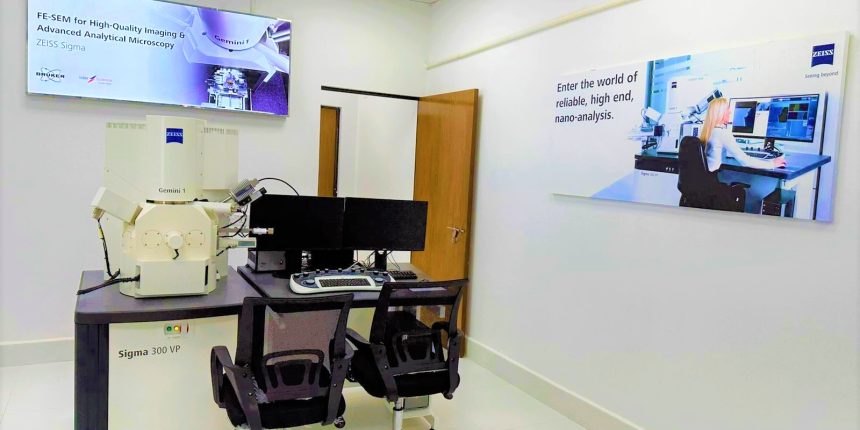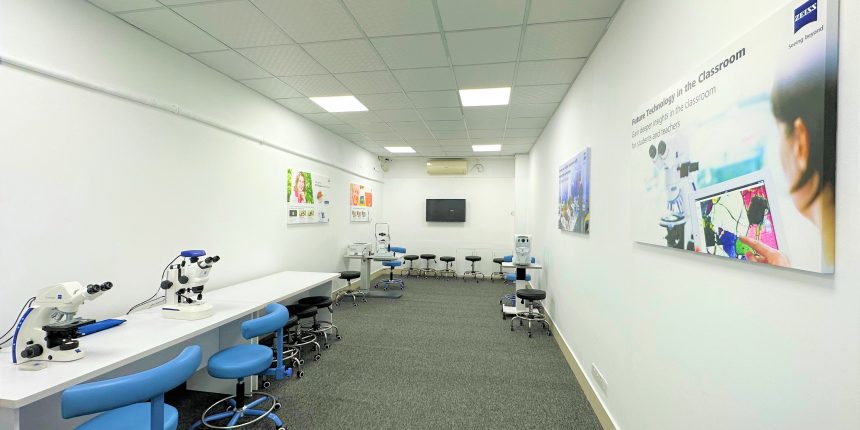Laboratories
Biomechanics Lab
The lab’s objective is to cover a wide range of studies integrating engineering mechanical concepts to human anatomy and physiology to explore difficult clinical problems. The study of gait analysis will also be backed up with the study of joint mechanics and musculoskeletal modeling.
Biofluid Mechanics and Heat Transfer Lab
The biofluid mechanics lab aims to study the role of blood flow phenomenon and its relationship with our major organs and its associated diseases. This study will definitely help us to address the pathophysiological processes of our vital organs like the heart, lungs, kidney and liver.The heat transfer part of the lab aims to provide fundamental knowledge about modes of heat transfer, like conduction, convection and radiation, and their Modeling and Numerical Simulation in biological systems.
Anatomy and Physiology Lab
This lab is intended to lay a foundation on terminology and concepts essential to the understanding of human anatomy and physiology. The experiments in this lab are designed to learn about what human body is and how it works, such that a student can understand the clinical needs and smartly develop engineering solutions.
Biomaterials Lab
The lab is intended to synthesize and characterize a new generation of biomaterials for various applications including tissue regeneration, drug delivery, and wound healing. Our interest includes but not limited to (i) synthesizing and characterizing a new generation of biomaterials, (ii) biomechanical testing of the biomaterials and/or implants, and (iii) design and develop fixation devices.
Rehabilitation Engineering Lab
The lab is intended to develop and clinically validate novel assistive and therapeutic tool to rehabilitate the disabled. The focus of this lab will be on the design and development of prosthetic for amputates. The lab will also extend its research to understand the control mechanism of neuromuscular system in normal and neurologically disordered persons, which will help develop assistive devices for neurologically disordered person.
Medical Imaging Lab
The medical imaging lab will provide access to modern imaging equipment for undergraduate and graduate studies. The research focus of this lab will be in developing novel imaging techniques and image signal processing methods for early diagnosis of life-threatening diseases. The lab will also contribute to our local healthcare industry by helping them in maintaining the standard of the medical equipment.
Speech and Hearing Lab
This lab is intended to develop a better understanding of the auditory perception of humans and analysis of speech signals for healthcare applications. The laboratory includes equipment for pure-tone audiometry and an anechoic chamber for conducting hearing tests and performing audio recordings.
Mobile Health and Telemedicine Lab
Mobile Health (mHealth) lab focuses on designing and developing various portable and wearable medical devices to collect physiological parameters and process them in real-time using a smartphone platform for a wide range of applications, including health monitoring, early diagnosis of diseases, telemedicine, and analysis of mental health. This lab also has high-performance computing facilities for developing deep learning algorithms for BME applications.
Tissue Engineering and Regenerative Medicine
The lab is intended to develop functional grafts/tissues that have the ability to direct the cellular response favorably and restore the functionality of the host tissue. The lab will also evaluate the effects of the processing conditions, such as decellularization, sterilization and biomimetic coating on the properties of the biological grafts/tissues. Controlled and targeted drug delivery through the developed grafts and scaffolds will another important area of research of this lab.
System Biology Lab
The lab is intended to develop computational tools to understand human health and disease. The focus will be on the construction of mathematical and/or statistical tool to have a better overview of what is going on the molecular level of a healthy and diseased human body.
Instrumentation Lab
This lab is intended to develop biomedical sensors and instrumentation systems to measure various physiological parameters, including ECG, EMG, PPG, etc. The laboratory also has several industrial-grade 3D printing and prototyping facilities frequently used for BME design projects.
Translational Neural Engineering Lab
This lab intends to better understand how the human nervous system works and thereby develop effective neurotechnologies to restore sensorimotor functions in people affected by different types of neural disabilities. The laboratory includes 40-channel EEG equipment for neural engineering research projects
Design Lab
This lab is intended to introduce students to various computational and simulation skills which are essential for a BME graduate. The experiments in this lab are project based to facilitate the learning and implementation for biomedical applications. The lab is also equipped with a small 3D printing machine to help students make a prototype. Eventually, in this lab a student will learn to innovate, implement, collaborate and build a computational and/or physical model to address a healthcare issue.
Animal Research Facility
At BME BUET Animal Research Facility (ARF) we have mice, rat and rabbit. The animals are kept under controlled environment. The need of temperature, moisture, food, water and sanitation are strictly addressed. The facility is kept under controlled accessed area. The ARF’s principal mission is to provide the most compassionate animal care possible and to support researchers in progressing their study through the use of animal models in accordance with the highest ethical standards. By developing and maintaining a complete animal care and use program that conforms to all applicable laws, policies, and regulations, we achieve these mission objectives.
Electron Microscopy Lab
Our ‘Electron Microscopy Laboratory’ specializes in operating a cutting-edge Field Emission Scanning Electron Microscope (FESEM) by the German company, Zeiss that allows us to achieve high-resolution imaging of materials at the nanoscale. Using this powerful technology, we can conduct a wide range of studies to investigate the microstructure and properties of any materials in various fields. The FESEM is also equipped with Energy Dispersive X-ray Spectroscopy (EDX) to study the composition of materials. By leveraging the high resolution of 1 nm provided by our Zeiss FESEM, we contribute to the development of advanced materials and technologies with improved performance and functionality, thus pushing the boundaries of scientific knowledge and innovation in Bangladesh.
Digital Microscopy Classroom, Ophthalmology & Vision Lab
Partnering with Zeiss’s Labs@Location we have developed a Digital Microscopy Classroom, Ophthalmology and Vision Laboratory. It is equipped with a variety of cutting-edge instruments, including a compound microscope, a stereomicroscope, and advanced equipment for testing eye health. With our compound and stereomicroscope we are able to observe and analyze biomaterials and biological samples at high magnifications and in three dimensions In addition to our microscopes, we also have advanced equipment for testing basic eye health. Through our partnership with Zeiss, we are able to stay at the forefront of digital microscopy and ophthalmology research, and provide our students, researchers, and clinicians with access to the latest advancements in these fields.
